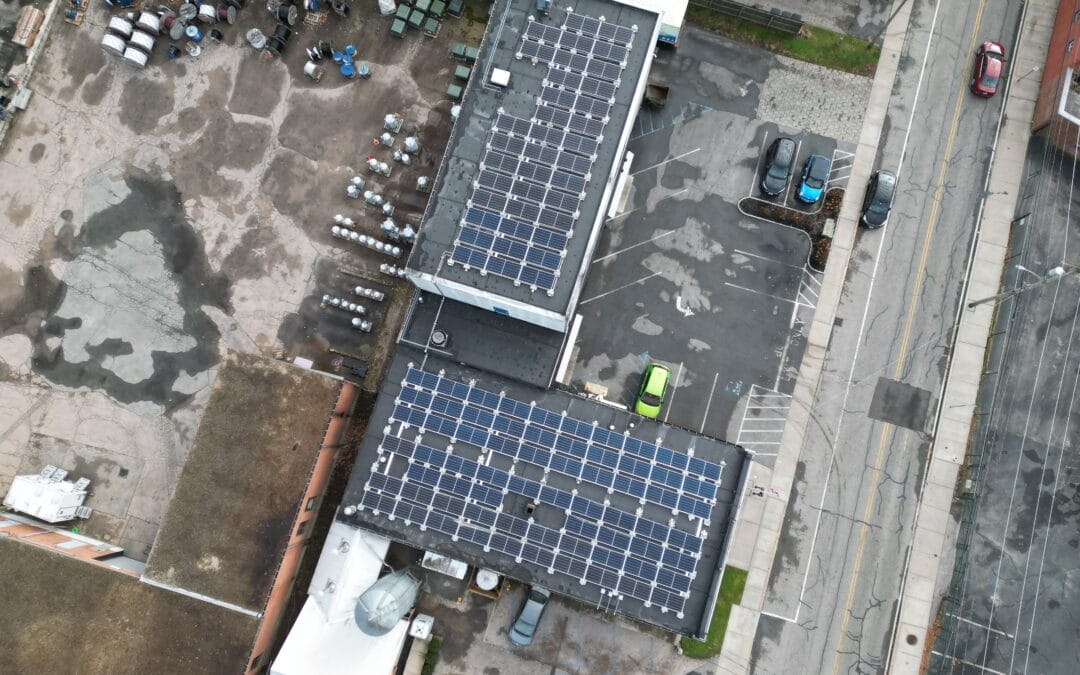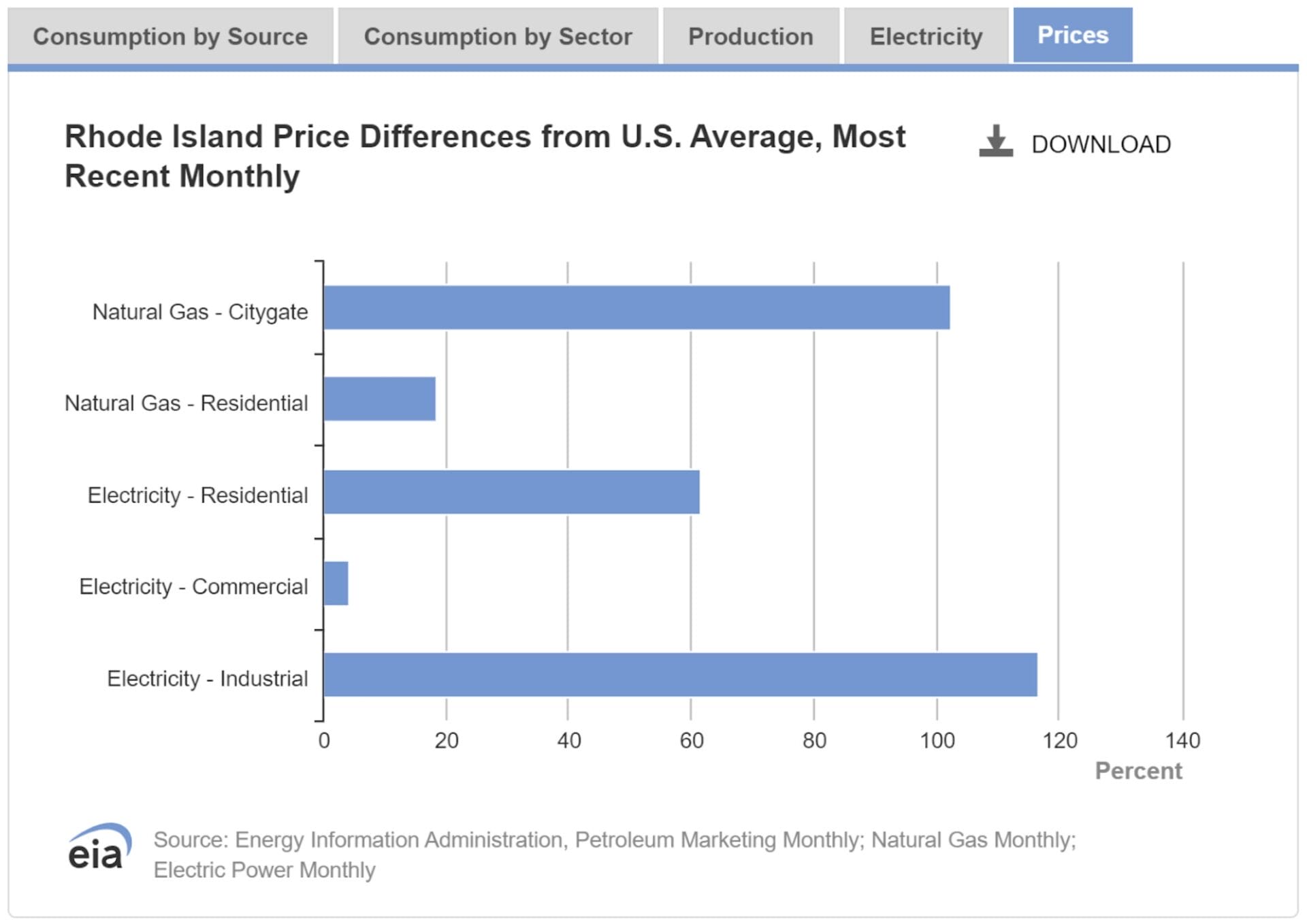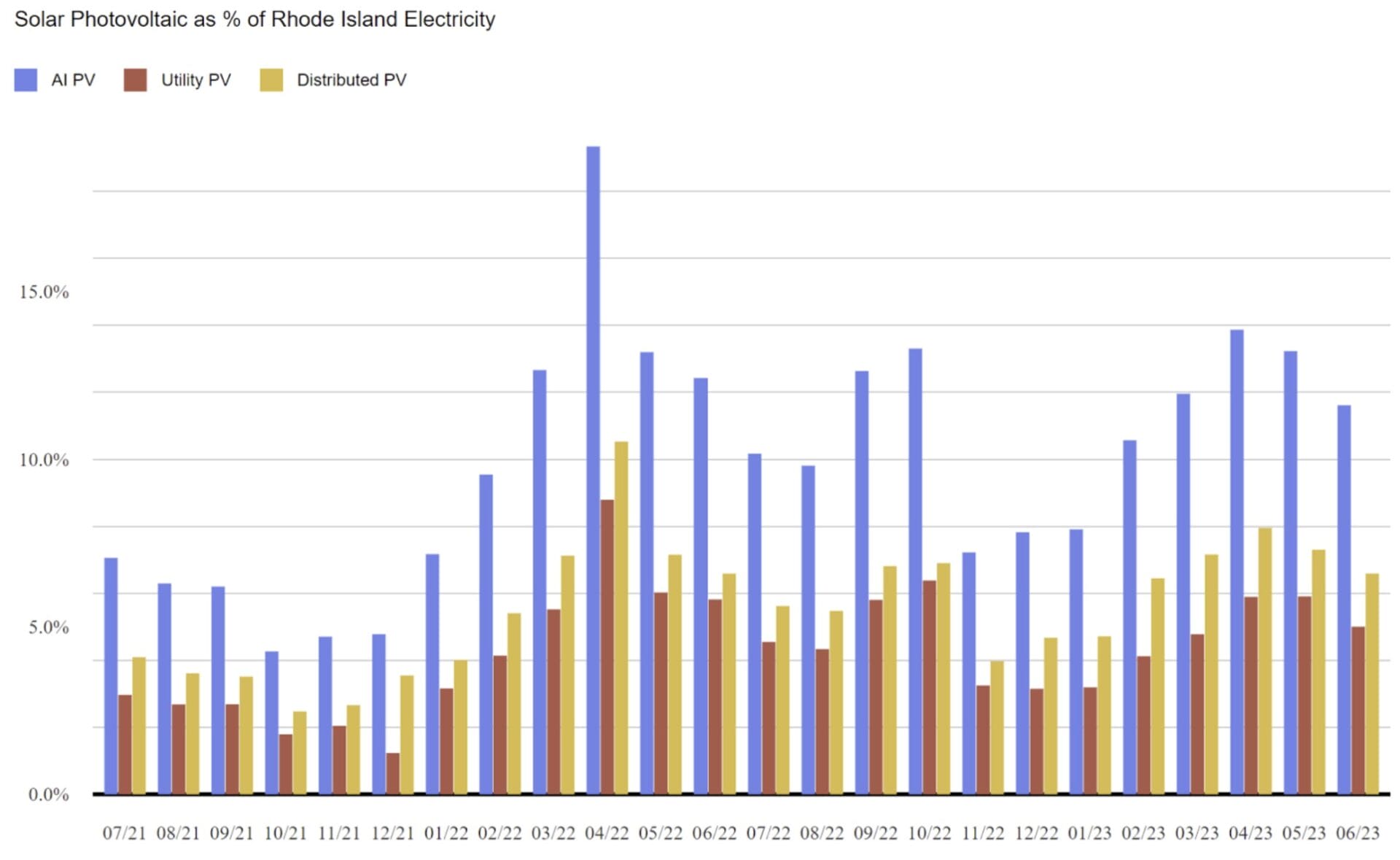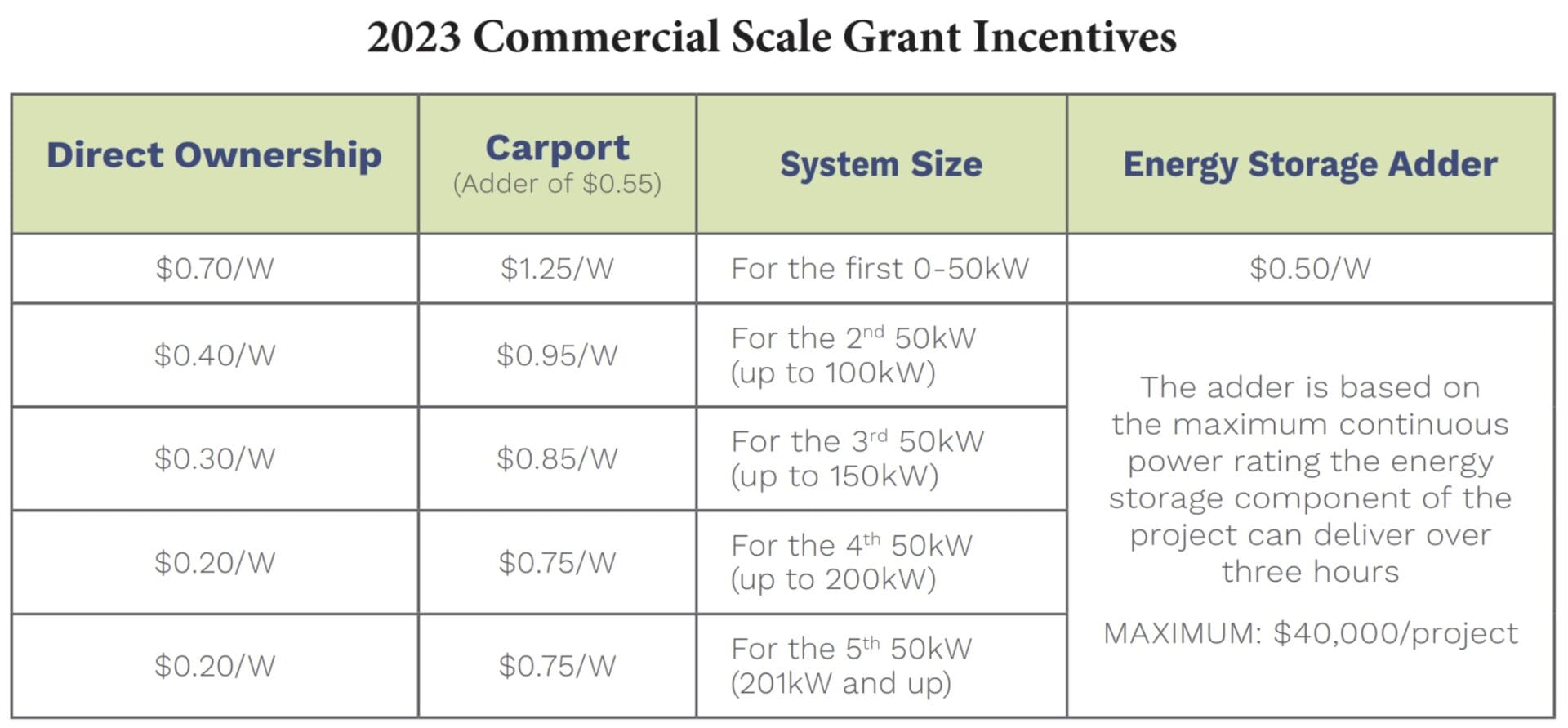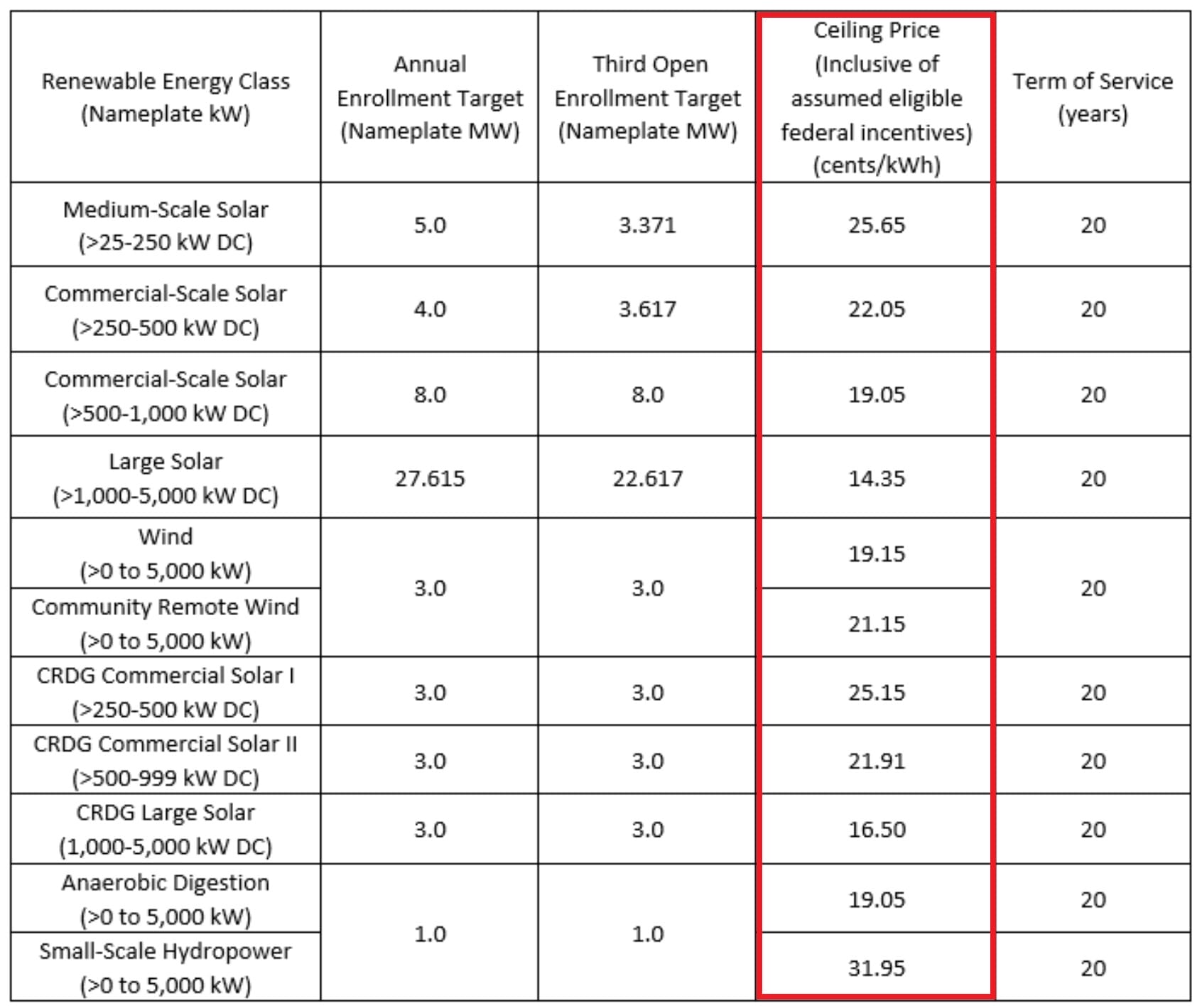Rhode Island has carved out a significant niche in the national solar landscape. The state stands out for its robust rooftop solar power generation, offering some of the nation’s best returns on investment for commercial solar. However, Rhode Island’s energy mix is still heavily reliant on natural gas (methane), leading to some of the highest electricity prices in the country.
According to the Energy Information Administration (EIA), Rhode Island’s electricity rates are substantially higher than the national average, ranging from 4% more for commercial ratepayers to nearly 120% higher for industrial clients.
Source: EIA
Legislators and residents in the state recognized early on the need to diversify their energy sources to reduce their reliance on methane. As a result, Rhode Island has become a leader in solar electricity generation. Over 10% of the state’s electricity generation now comes from solar power, predominantly generated by distributed sources like business and home rooftops, rather than utility-scale solar power plants.
In addition to its solar initiatives, Rhode Island supplements its energy needs with electricity from a nuclear power plant in Connecticut and wind and solar from large-scale plants outside the state. The state has an ambitious goal to source 100% of its electricity from clean resources by 2030.
Source: PV Intel, total Rhode Island electricity generation from solar power
Net Metering
A cornerstone policy for boosting commercial solar in Rhode Island is Net Metering, a policy (and law) that offers significant benefits for businesses and residents with onsite solar installations. Net Metering policies allow excess electricity generation to be credited, enabling owners of solar power systems to offset their electricity usage across different times, including at night and across varying seasons. Rhode Islands’ Net Metering policy stipulates that the solar power system’s generation must not exceed 125% of the property’s consumption, ensuring a balance between production and usage.
Renewable Energy Fund
Rhode Island also incentivizes commercial solar installations through the Renewable Energy Fund (REF).
This program provides funding for commercial-scale projects starting at $0.70 per watt, with decreasing amounts offered as the array size increases, capped at $75,000 per project. The REF also offers an ‘Energy Storage Adder’ incentive of $0.50 per watt, maxing out at $40,000 per project. Projects that include the installation of solar panel-covered carports receive a little more, at $0.55 per watt.
After the solar PV system has been installed, the paperwork processed, and a quality assurance evaluation has been completed, the grant goes directly to the system owner.
Between incentives and the high price of electricity, solar power projects in Rhode Island often pay for themselves in under five years.
Renewable Energy Growth Program
Another key incentive is the Renewable Energy Growth Program (REG), which compensates solar systems for the energy they contribute directly to the grid. These “stand-alone” systems deliver electricity directly to the grid, rather than to surrounding properties. Payment rates vary depending on the size of the solar project, with National Grid paying between 14.35 to 25.65 cents per kilowatt-hour over a twenty-year period. Customers can choose direct payment for all output or a combination of bill credits and direct payment.
For smaller projects, (25 to 250 kW), this can translate to significant earnings, potentially up to $75,000 annually from a fixed contract with the power company.
For a real-life example, explore our financial model for a building in Bristol, RI.
This model illustrates the advantages of Rhode Island’s twenty-year REG contract and the steady income potential from commercial solar installations. It details initial costs, necessary upgrades, and the impact of tax incentives like the Investment Tax Credit and MACRS depreciation. Notably, the analysis reveals how such investments can cover more than half of their cost in the first year, leading to cost recovery within five years.
Solar investments stand out for their reliability and safety, akin to investing in a money market account or dividend-bearing stocks, but with the added assurance of practically guaranteed returns. Unlike more volatile investment options, solar provides a stable, predictable revenue stream, making it a prudent choice for those seeking long-term financial security.
With Rhode Island’s advancement towards renewable energy, investing in commercial solar is a smart environmental and financial decision. These first-come, first-served programs offer an opportunity for significant ROI. If you’re in Rhode Island and considering solar for your home or business, reach out to us at craig@commercialsolarguy.com. At CommercialSolarGuy, we’re ready to guide you towards making an informed investment that is tailored to meet your unique needs, ensuring a sustainable and profitable future. Act now to secure your place in Rhode Island’s renewable transformation.
By: John Fitzgerald Weaver – Solar Consultant
